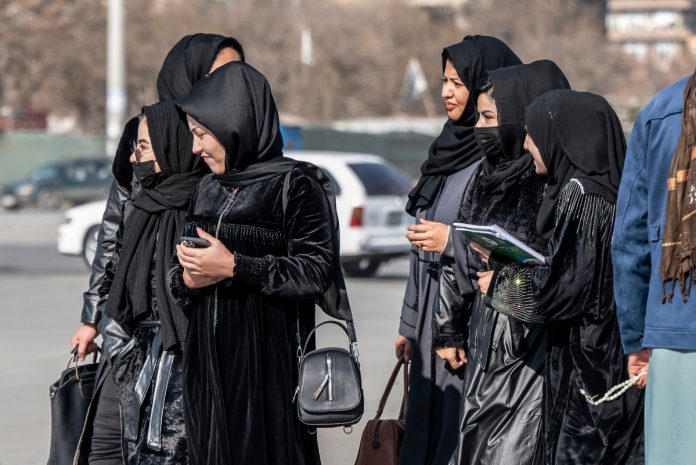Women in Afghanistan will no longer be allowed to pursue nursing and midwifery studies following an edict issued by the Taliban’s supreme leader, according to senior staff at institutions offering these programs.
Health officials communicated the directive during a meeting with institute directors in Kabul on Monday, December 2, a public health ministry official told AFP.
The official, who was not authorized to speak publicly, explained that while no formal letter had been issued, the directors were informed in the meeting that women and girls could no longer study in these institutes.
The directors were not provided with further details or reasons for the decision, only instructed to enforce the order.
The ruling, which lacks official documentation, has led to confusion at educational institutions. While some administrators sought clarification from the health ministry, others continued operations as usual, awaiting a written directive.
This ban marks another devastating setback for women’s education in Afghanistan, which has been increasingly restricted since the Taliban regained power in 2021. Girls have already been barred from secondary schools and universities, with many turning to health-related studies as one of the few remaining educational opportunities.
Women currently make up the majority of students in Afghanistan’s health institutes, which include 10 public and over 150 private institutions offering two-year diplomas in fields like midwifery, anesthesia, pharmacy, and dentistry. These institutions serve approximately 35,000 female students.
Institute managers voiced concerns about the impact of the ban. “What are we supposed to do with just 10 percent of our students?” one manager questioned.
Aysha, a 28-year-old midwifery instructor in Kabul, said her institute told her not to report to work until further notice. “This is a big shock for us. Psychologically, we are shaken. This was the only source of hope for the girls and women who were banned from universities,” she said.
The United Kingdom’s charge d’affaires called the reports “deeply concerning,” emphasizing on social media that the decision represents “another affront to women’s right to education” and will further restrict healthcare access for Afghan women and children.
The ban is expected to worsen Afghanistan’s already severe shortage of medical and paramedical professionals. “We are already short of professional medical and paramedical staff, and this will lead to even greater shortages,” warned the health ministry source. The Taliban’s actions continue to face widespread condemnation, with the United Nations labeling them as contributing to “gender apartheid.”












